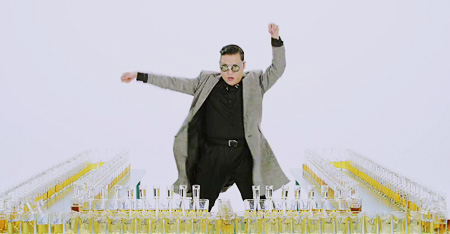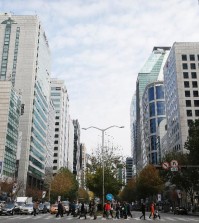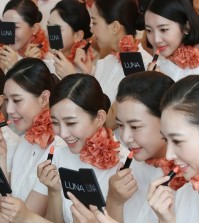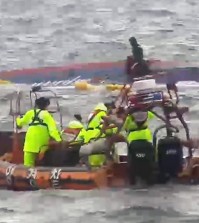- California Assembly OKs highest minimum wage in nation
- S. Korea unveils first graphic cigarette warnings
- US joins with South Korea, Japan in bid to deter North Korea
- LPGA golfer Chun In-gee finally back in action
- S. Korea won’t be top seed in final World Cup qualification round
- US men’s soccer misses 2nd straight Olympics
- US back on track in qualifying with 4-0 win over Guatemala
- High-intensity workout injuries spawn cottage industry
- CDC expands range of Zika mosquitoes into parts of Northeast
- Who knew? ‘The Walking Dead’ is helping families connect
Guess the most-searched words about Korea
By Kim Rahn
What keywords do people planning trips to Korea search for the most on the Internet?
It was “Gangnam” for English-speaking people, “Jeju Island” for Chinese speakers and “bulgogi” (Korean barbeque) for Japanese, according to the Korea Tourism Organization (KTO), Tuesday.
The KTO analyzed 200 keywords related to tourism at three major foreign search engines ― Google for English, Baidu for Chinese and Yahoo Japan for Japanese ― for one year from August 2013 to this July.
“The most searched keywords in each language group show their respective interests,” a KTO official said.
“English-speaking groups wanted standard tourist information such as weather and transportation, while Chinese people were more interested in shopping with two duty free shops being included in their top 10. Japanese people focused mainly on food, as six of the top 10 words searched related to foods.”
Gangnam was the most searched word on Google, probably because of the global popularity of singer Psy’s “Gangnam Style.” Since his song became a mega hit in late 2012, the affluent southern Seoul district has actually enjoyed a much larger number of tourists than before.
Besides Gangnam, Google users searched for Seoul, “bibimbap” (rice mixed with assorted vegetable), Seoul weather, bulgogi, Busan, KTX, Incheon airport and Jeju Island.
On Baidu, Jeju Island topped the ranking, reflecting the growing popularity of the southwestern resort island among Chinese people. Jeju was followed by Lotte Duty Free, Seoul, Seoul weather, Shilla Duty Free, Mount Halla, Korean food and Korea visa.
“We saw a growing number of Chinese people search for keywords on individual tours, such as ‘Seoul map’ or ‘How to travel in Seoul,’” he said.
Bulgogi was the most searched word on Yahoo Japan, followed by Seoul, Korean food, Korean cosmetics, Korea ginseng, “naengmyeon” (cold noodle), “buchimgae” (Korean-style pancake), Busan and bibimbap.
Other food items included “makgeolli” (milky rice wine) ranked 18th, and “patbingsu” (ice flakes with red bean topping), 23rd.
Among tourist attractions, Lotte World was the most searched on Google and Yahoo Japan, and Mount Halla, on Baidu. For attractions related traditional Korean culture, Gyeongbok Palace topped the ranking on all of the three search engines.
“We can see the travel patterns of tourists from each language group through the keywords. It will help us set up marketing plans for inbound travelers,” he said.
















